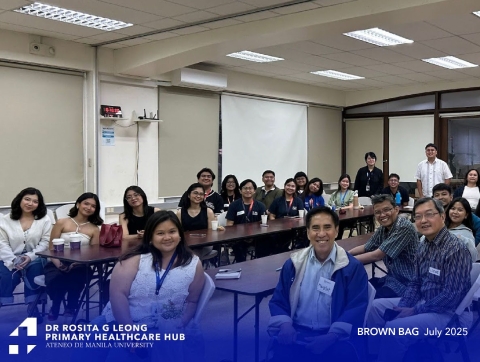Ateneo universities across the Philippines mark the launch of the Philippine Observatory on Democracy
30 Apr 2025
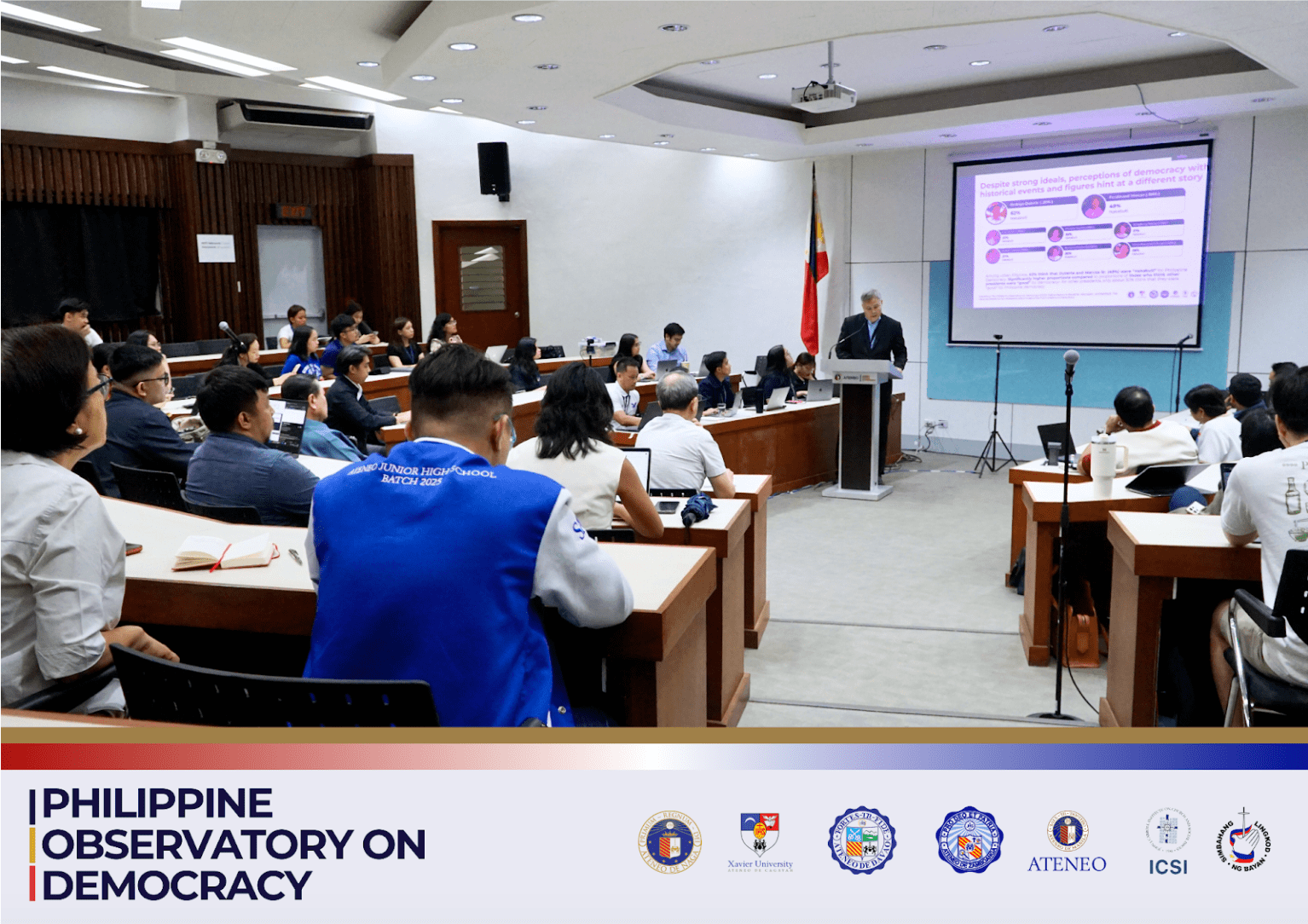
On 29 April 2025, the Philippine Observatory on Democracy (POD) Consortium was launched at Hurtado Hall, Ateneo School of Government, Ateneo de Manila University. The POD Consortium is part of a global, Jesuit-led effort to reexamine the state of democracy and civic life in various national contexts. It is composed of Ateneo universities—Ateneo de Davao University, Ateneo de Manila University, Ateneo de Naga University, Ateneo de Zamboanga University, Xavier University - Ateneo de Cagayan, alongside Simbahang Lingkod ng Bayan, and the John J Carroll Institute on Church and Social Issues.
In 2022, Fr General Arturo Sosa announced the impetus for the global Democracy Observatory led by the International Association of Jesuit Universities (IAJU) and called for member institutions to participate in political life and offer political formation to their university community members. In light of democratic backsliding in the Philippines and a recognition of the importance of a bottom-up approach to understanding democracy in practice, the POD Consortium was formed to monitor and assess the quality of democracy in the Philippines, provide a platform for inter-university collaboration and democratic education, and promote democratic awareness and civic engagement among communities.
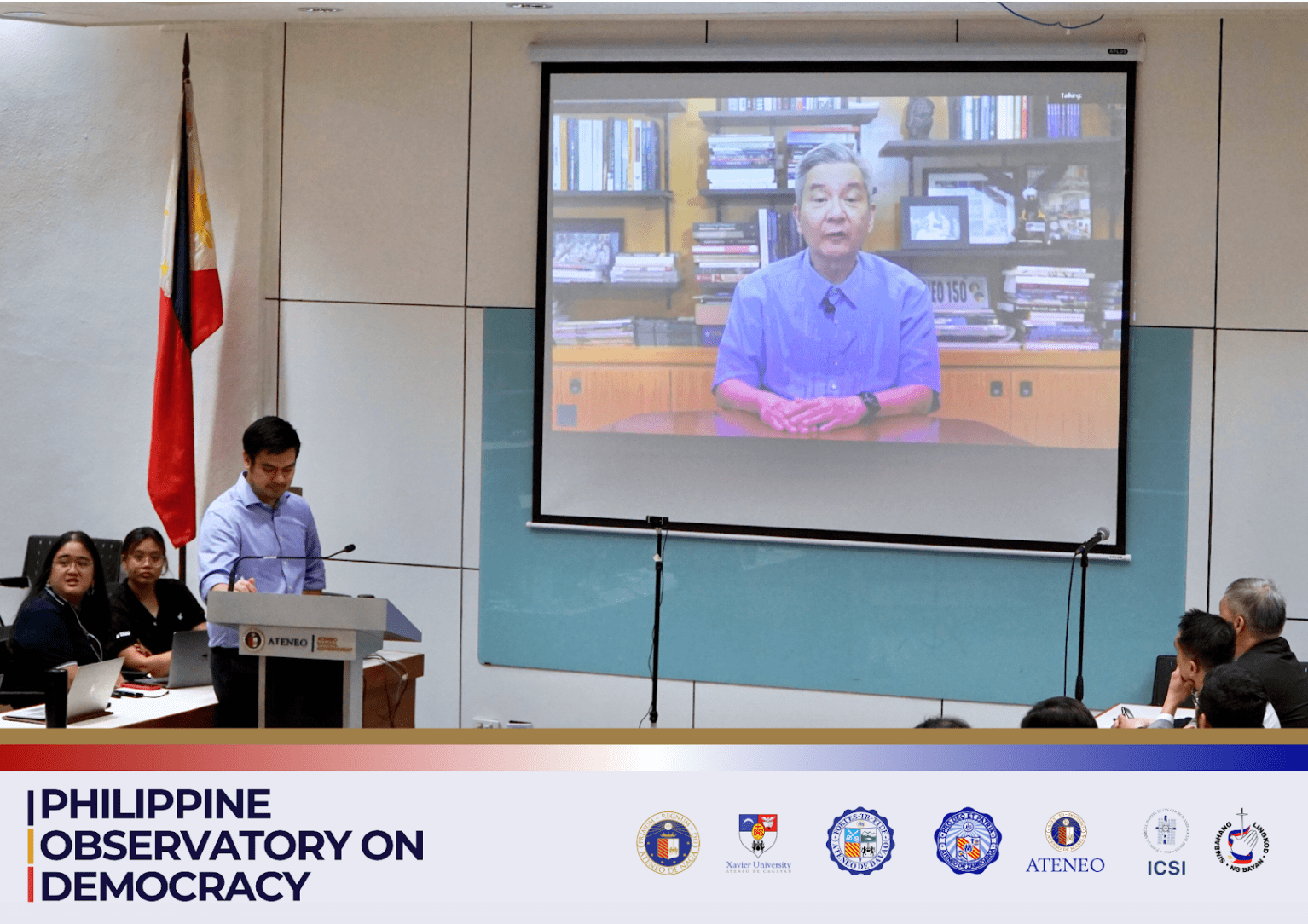
Presidents of each Ateneo university shared similar views about the importance of deepening our collective understanding of democratic trends in the country. For Fr Karel San Juan of Ateneo de Davao University, “Democracy is more easily proclaimed and promoted as a principle than practiced and protected as a commitment and lifestyle.” The objectives of this project are thus strategic and critical, not just to the country, but also to the Catholic community. Similarly, Fr Aristotle Dy Sy of Xavier University-Ateneo de Cagayan highlighted that we are now in the Jubilee year of hope and, as pilgrims of hope, are called to synodality: “Through the Philippine Observatory on Democracy project, I hope we can understand democracy better, really get into the depths of what people understand by this big world, and work together for something that will truly benefit the people.”
Fr Ernald M Andal of Ateneo de Zamboanga University also reflected on the fragility of democracy in Western Mindanao and how it has never been an easy promise to fulfill. According to him, “At Ateneo de Zamboanga University, we live this reality everyday. That is why the POD matters to us. It gives us a way to listen, not just to opinions but to deep longings for fairness, participation, peace, and the simple dignity of being seen and heard.” Fr. Roberto Yap of the Ateneo de Manila University ended the opening remarks with a reminder of how POD naturally aligns with the IAJU initiative: “Forming discerning, engaged, and committed citizens for the common good is part of our DNA as a Filipino, Catholic, and Jesuit university. The POD is a concrete expression of that mission, and we are deeply grateful to our partners who are committed to that mission.”
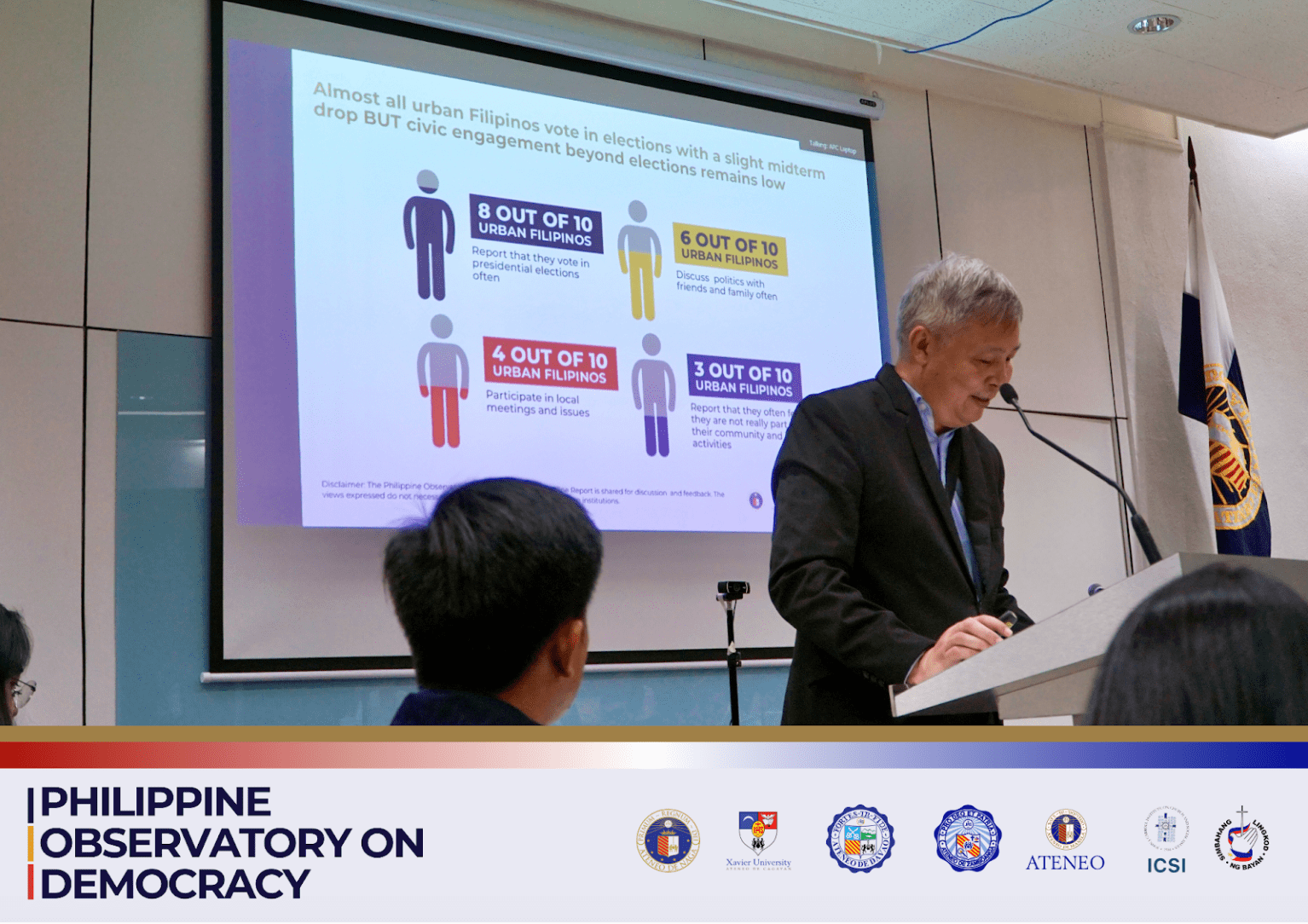
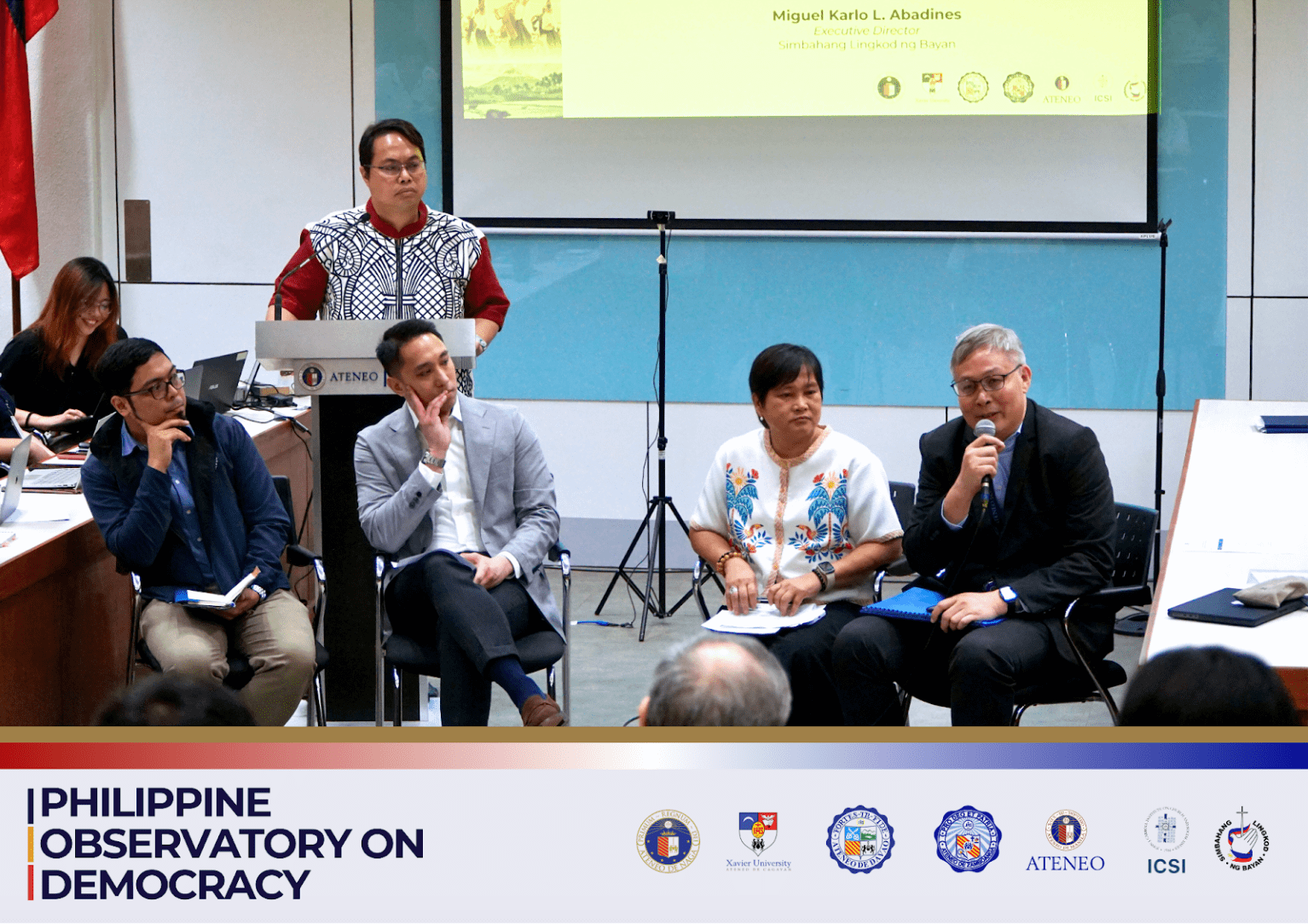
Dr Philip Arnold P Tuaño, Dean of the Ateneo School of Government, presented preliminary insights based on the Topline Report of the Philippine Observatory on Democracy Survey. According to Dean Tuaño, the survey “reveals a clear prioritization of socio-economic concerns and basic state functions over liberal rights, presenting another facet of the gap between abstract ideals and practical priorities on democracy.” Afterwards, a panel composed of Dean Tuaño, Dr Rosalinda C Tomas, Faculty of the Ateneo de Davao University, Dr Robin Michael U Garcia, Associate Professor of the Ateneo School of Government and CEO of the WR Advisory Group, and Karlo Abadines, Executive Director of the Simbahang Lingkod ng Bayan, probed into the implications of these results on the different and nuanced ways Filipinos evaluate historical trends and political leaders, the value of performance legitimacy in the Philippine context, and the reexamination of political education moving forward.
According to Dean Tuaño, the challenges and opportunities for democratic consolidation provided by the survey results echoes calls for “a better kind of politics” as often mentioned by the late Pope Francis— one truly oriented towards the common good, rooted in inclusive dialogue and encounter, social friendship, and a commitment to political participation.
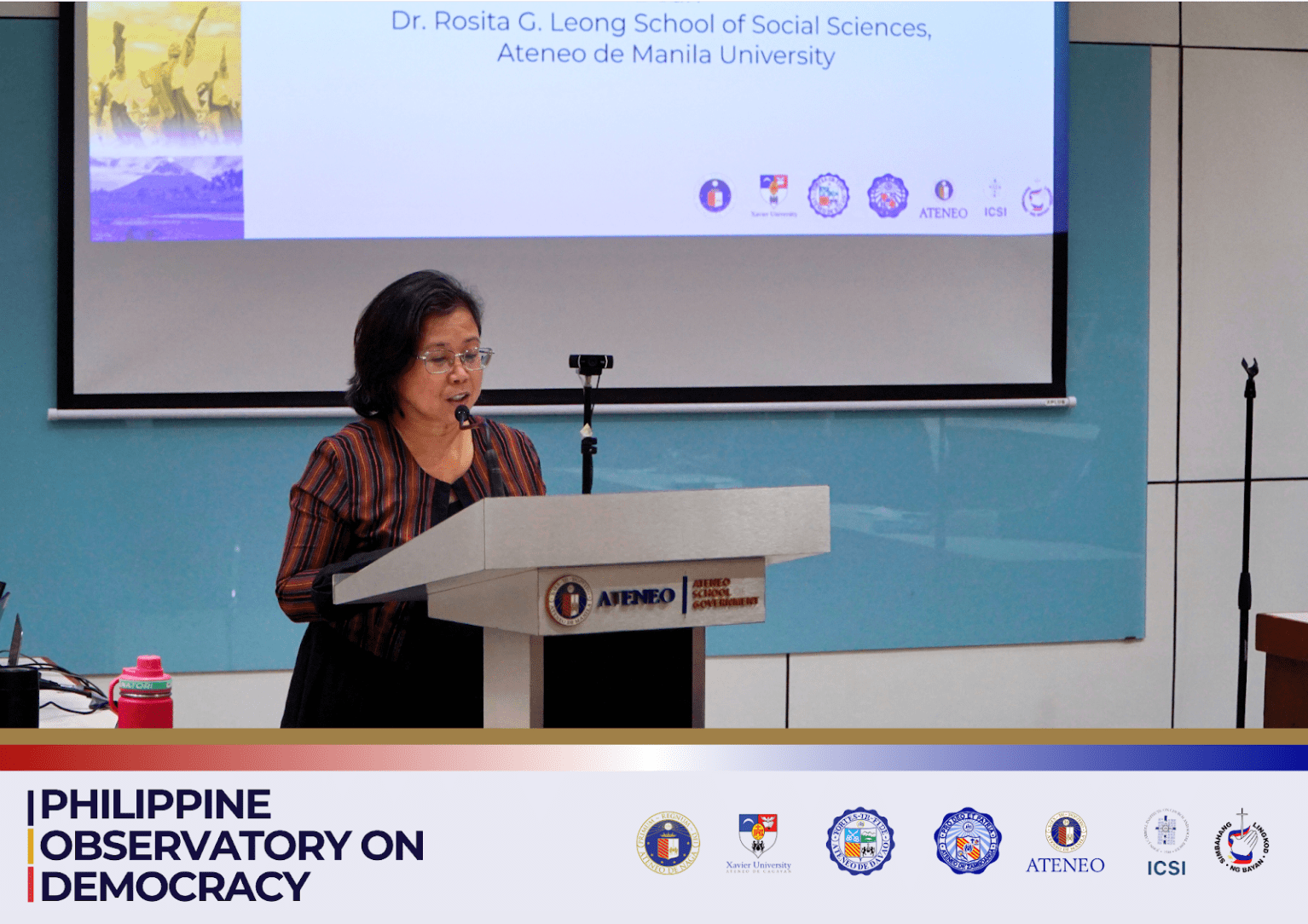
For Dr Czarina Saloma-Akpedonu, Dean of the Dr Rosita G. Leong School of Social Sciences, contextualizing universal notions such as democracy is crucial as we navigate the increasingly interconnected reality. The POD Consortium may be able to “demonstrate a global perspective by being part of the Democracy Observatory managed by IAJU, but we are also increasingly orienting ourselves to learning more about the impact of global developments locally.”
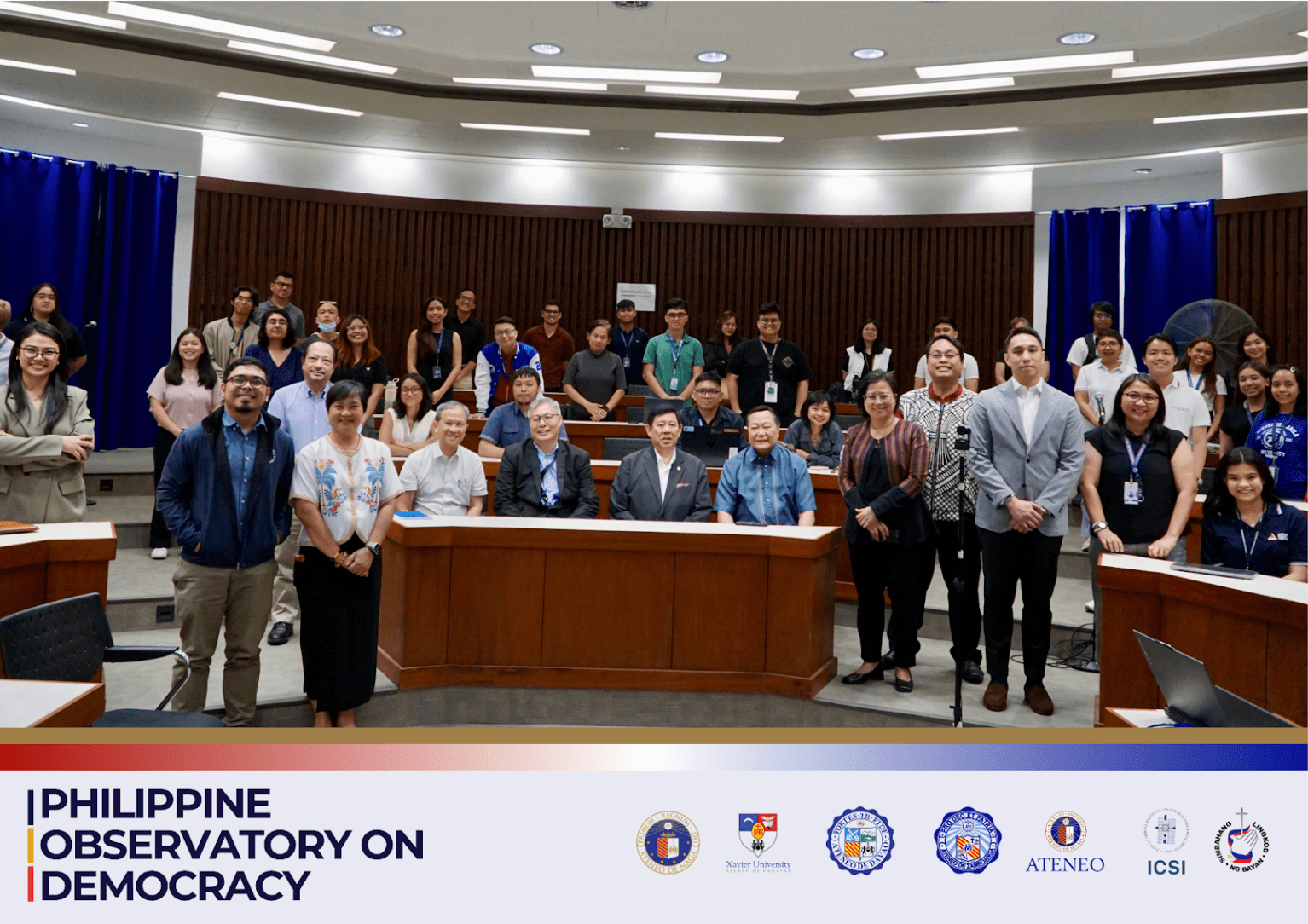
These survey findings do not represent an endpoint to the pursuit of understanding democratic attitudes, but rather a starting point for a broader, deeper, and more inclusive conversation on democracy. The Philippine Observatory on Democracy is committed to translating the challenges to democracy and insights into how Filipinos understand it, as presented in the survey, into actionable insights through practical discussions in the coming months. Deeper analysis of the survey data, as well as qualitative inquiry into the questions arising from these preliminary insights, will also be conducted by the POD consortium in the coming months.
Read the full report here.


